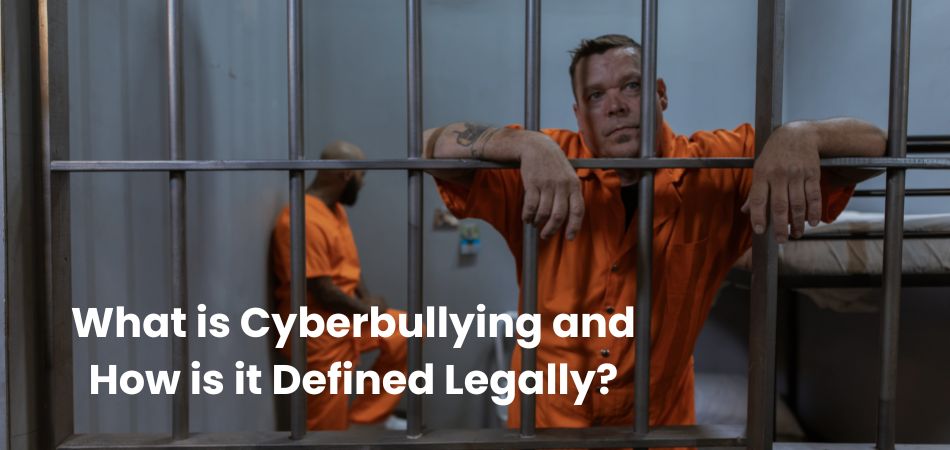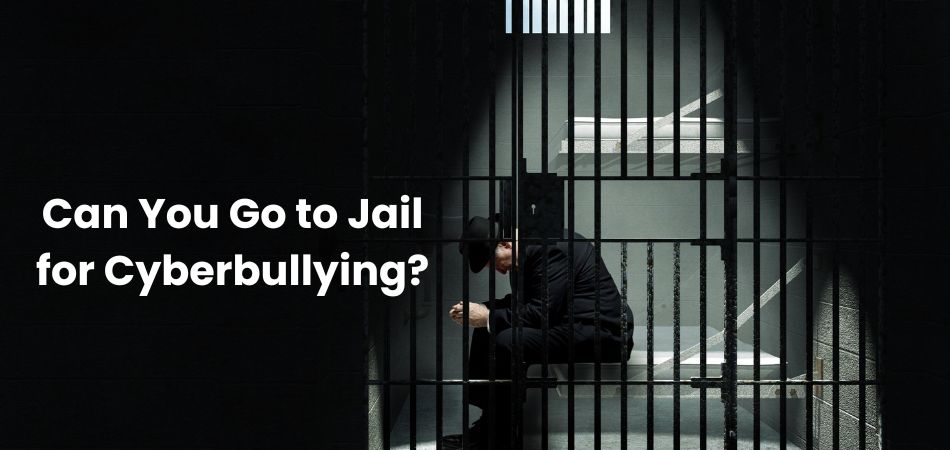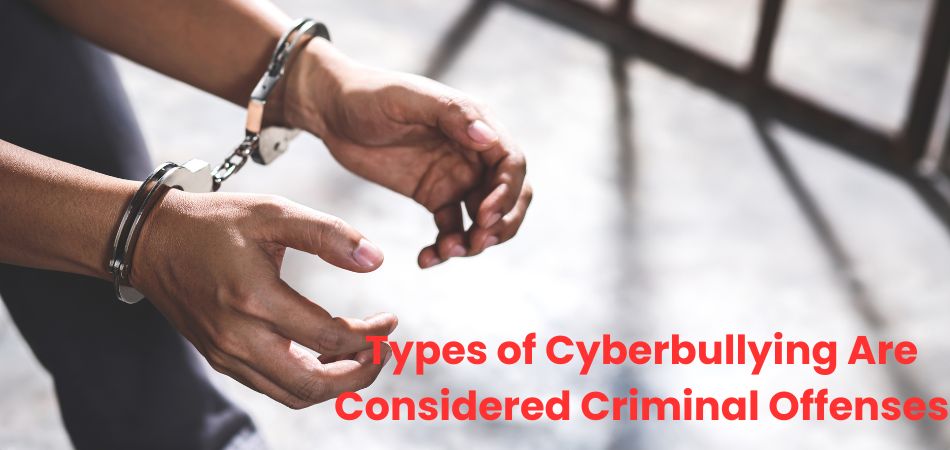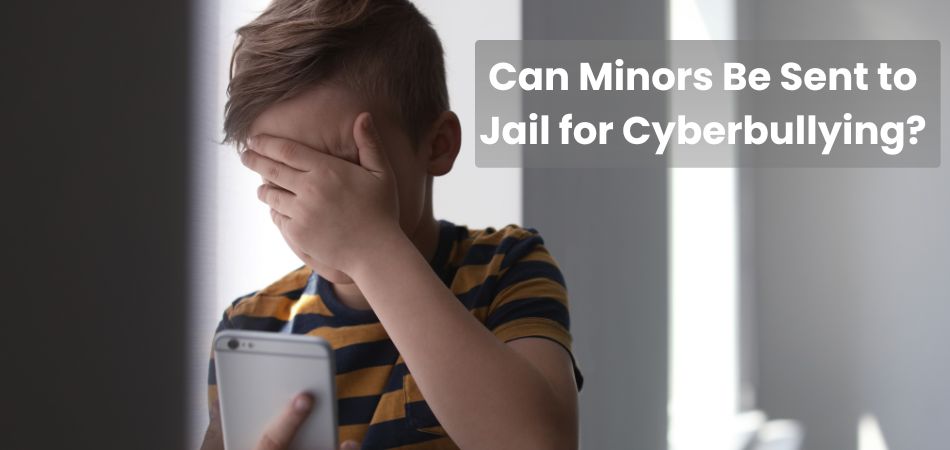Today, where communication happens at lightning speed, words have a greater reach and impact than ever before. Unfortunately, this also means harmful behaviors, like cyberbullying, can spread widely and cause significant emotional and psychological damage. But can you go to jail for cyberbullying?
Yes, you can go to jail for cyberbullying, especially if it involves harassment, threats, or defamation. The severity and impact, including harm to minors, often determine whether criminal charges and jail time are imposed.
Throughout this post, we’ll explore the legal implications of cyberbullying, real-world cases, and the consequences perpetrators may face, including potential jail time. Let’s explore the fine line between free speech and criminal behavior online.
What is Cyberbullying and How is it Defined Legally?
Cyberbullying refers to the use of digital platforms—such as social media, messaging apps, gaming networks, or email—to harass, intimidate, or harm others. It includes actions like sending threatening messages, spreading false rumors, sharing private information without consent, or persistently targeting someone with abusive comments.

Unlike traditional bullying, cyberbullying has a broader reach and a more permanent digital footprint, often leaving victims feeling helpless and exposed. Its impact can be severe, leading to emotional distress, anxiety, depression, and even suicidal thoughts.
Legally, cyberbullying definitions vary by jurisdiction, but many laws categorize it under harassment, stalking, or criminal defamation. Some regions have specific legislation addressing online harassment, while others apply existing laws to digital behavior.
For an act to be considered cyberbullying legally, it often must meet criteria like intent to harm, repeated conduct, and substantial emotional or reputational damage to the victim.
Can You Go to Jail for Cyberbullying?
Yes, you can go to jail for cyberbullying, depending on the nature and severity of the actions involved. In many jurisdictions, cyberbullying is classified as a criminal offense when it crosses into harassment, threats, stalking, or defamation. Cases involving severe emotional distress, threats of violence, or harm to minors often carry harsher penalties, including jail time.

Laws are increasingly evolving to address the growing prevalence of online harassment and its devastating consequences. Whether someone goes to jail for cyberbullying depends on several factors, including the applicable laws in their region, the evidence presented, and the judge’s discretion.
In some instances, particularly involving minors, courts may prioritize rehabilitation over incarceration. However, in extreme cases, such as cyberbullying that results in physical harm or suicide, courts may impose jail sentences to emphasize accountability and deter future behavior.
What Happens if You Are Accused of Cyberbullying?
Being accused of cyberbullying can be a serious and life-altering event. The consequences can range from legal penalties to social and reputational harm. Here’s what happens if you’re accused of cyberbullying:
1. Legal Notification and Investigation
If you are accused of cyberbullying, you may be informed by law enforcement or through a formal complaint. Authorities will likely investigate the claims by collecting evidence such as messages, emails, or posts linked to the accusation. You should stand up against bullying by cooperating with the investigation while also seeking legal advice to understand your rights and obligations throughout the process.
2. Possible Arrest or Legal Charges
Depending on the severity of the allegations, you might face criminal charges, which could include harassment, defamation, or threats. In some cases, you may be arrested or issued a court summons. Legal consequences vary, but knowing the charges against you is the first step toward building a defense.
3. School or Workplace Disciplinary Actions
If the accusation involves a school or workplace setting, additional consequences may follow. Schools might suspend or expel students, while workplaces could impose disciplinary actions, including termination. These actions often occur independently of legal proceedings and are based on organizational policies.
4. Social and Emotional Impact
Being accused of cyberbullying can lead to social backlash, including damaged relationships and a tarnished reputation. You may face public criticism, especially if the case gains media attention or involves a community group. Emotional stress, including anxiety or depression, is also a common outcome for those accused.
5. Seeking Legal and Emotional Support
Consulting an attorney is essential to understand the legal implications of the accusation and to prepare a defense. Emotional support from trusted friends, family, or mental health professionals can help manage the stress. Taking proactive steps, like attending mediation or anti-bullying workshops, can demonstrate accountability and a willingness to make amends.
Types of Cyberbullying Are Considered Criminal Offenses
While not all cyberbullying behaviors are considered criminal, certain actions cross legal boundaries and result in serious consequences. These offenses often involve threats, harassment, or actions that cause substantial harm to the victim. The following types of cyberbullying are criminal offenses:

1. Threatening Messages or Communications
Sending messages that threaten physical harm, violence, or death is a criminal offense in most jurisdictions. These threats, even if not carried out, can lead to charges of intimidation or assault. Law enforcement takes such actions seriously, especially if the threats target specific individuals or groups. Digital evidence, like screenshots or chat logs, is often used to prosecute these cases.
2. Online Harassment and Stalking
Repeatedly targeting someone with unwanted messages, posts, or calls can amount to harassment or stalking. Online stalking involves tracking someone’s activities obsessively, often with malicious intent. These behaviors violate personal privacy and can escalate into criminal charges. Victims are encouraged to report such actions to authorities and preserve any evidence for their case.
3. Sharing Explicit or Private Content Without Consent
Distributing someone’s private information or explicit images without their consent is a criminal act known as doxxing or revenge porn. Many regions have specific laws addressing these offenses to protect victims from humiliation and emotional distress. The penalties for these crimes can include hefty fines and prison sentences. Platforms are also required to cooperate in removing such content and aiding investigations.
4. Defamation or Spreading False Information
Cyberbullying that involves spreading false, damaging information about someone can lead to criminal defamation charges. While free speech is protected, statements that harm someone’s reputation intentionally or recklessly can result in legal action. This type of cyberbullying is particularly harmful in professional or academic settings. Victims can pursue civil or criminal remedies depending on the jurisdiction.
5. Encouraging Self-Harm or Suicide
Encouraging or coercing someone to harm themselves or commit suicide is a grave criminal offense. Cases where cyberbullying leads to self-harm or death are often prosecuted to the fullest extent of the law. Perpetrators may face charges of manslaughter, harassment, or incitement. Law enforcement and advocacy groups work to prevent such tragedies by promoting education and support for victims.
Can Minors Be Sent to Jail for Cyberbullying?
Minors can be sent to jail for cyberbullying, though the consequences often depend on the severity of their actions and local laws. In many jurisdictions, minors who engage in severe forms of cyberbullying—such as making credible threats, harassment, or sharing explicit images without consent—can face criminal charges.

Courts may treat these offenses as juvenile delinquency cases, where penalties can include detention in a juvenile facility, probation, or mandatory counseling programs. However, the legal system often emphasizes rehabilitation over punishment for minors.
The likelihood of incarceration increases if the cyberbullying leads to serious consequences, such as physical harm or suicide. Some regions have zero-tolerance policies for digital harassment, and minors may face adult-level charges in extreme cases. Parents and educators play a crucial role in educating minors about the legal and ethical implications of their online behavior to prevent such outcomes.
Differences Between Civil and Criminal Penalties for Cyberbullying
When cyberbullying occurs, it can lead to both civil and criminal consequences depending on the nature of the offense. Civil penalties often involve compensation for damages, while criminal penalties focus on punishment for violating laws. The following table compares civil and criminal penalties for cyberbullying:
| Aspect | Civil Penalties | Criminal Penalties |
| Purpose | To compensate the victim for harm or damages caused. | To punish the perpetrator and deter future offenses. |
| Initiator | The victim files a lawsuit. | The state or government prosecutes the offender. |
| Burden of Proof | Preponderance of evidence (more likely than not). | Beyond a reasonable doubt (higher standard). |
| Potential Outcomes | Financial damages, injunctions, or restraining orders. | Jail time, fines, probation, or community service. |
| Examples of Cases | Defamation, invasion of privacy, emotional distress. | Harassment, stalking, threats, or exploitation. |
Frequently Asked Questions About Cyberbullying
Cyberbullying is a complex issue that raises many questions about online behavior, prevention, and legal implications. Beyond the legal aspects, individuals often wonder about ways to address and prevent cyberbullying effectively. Here are some frequently asked questions to provide clarity on navigating the digital landscape.
1. How Can You Identify Cyberbullying When It Happens?
Cyberbullying often involves repeated, targeted actions such as insults, threats, or spreading false information online. Look for signs like excessive negative comments, unauthorized sharing of personal content, or manipulative messages. Recognizing patterns of harmful behavior is key to addressing and stopping it.
2. What Steps Should Victims of Cyberbullying Take Immediately?
Victims should document evidence of the cyberbullying, including screenshots of messages or posts. They should also block the perpetrator and report the abuse to the platform where it occurred. Seeking support from friends, family, or counselors can help manage the emotional impact.
3. Can Bystanders Play a Role in Stopping Cyberbullying?
Yes, bystanders can intervene by reporting abusive content to platform moderators or offering support to the victim. Encouraging others to speak up against bullying can create a safer online environment. Silence often enables cyberbullying, so active involvement is crucial.
4. Are There Tools to Prevent or Monitor Cyberbullying?
Many platforms provide tools like content filters, block options, and reporting systems to address cyberbullying. Parents and educators can use monitoring software to guide young users on appropriate online behavior. Raising awareness and promoting digital literacy are essential for prevention.
5. What Are the Long-term Effects of Cyberbullying on Victims?
Cyberbullying can lead to long-term psychological effects, including anxiety, depression, and low self-esteem. Victims may also experience difficulties trusting others or engaging with social media in the future. Seeking professional help can be vital in recovering from these impacts.
Conclusion
Cyberbullying is a serious issue with both emotional and legal consequences. The impact of online harassment extends far beyond the screen, often causing lasting harm to victims.
Being aware of the laws surrounding cyberbullying is essential, especially as the question “can you go to jail for cyberbullying?” becomes increasingly relevant. Depending on the severity of the actions and jurisdiction, offenders may face criminal charges, including imprisonment.
However, prevention, education, and spreading empathy online can play a significant role in addressing this problem. Let’s work toward creating a safer digital environment where respect and accountability are the standard.
